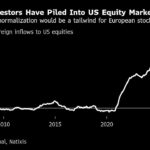
The industry juggernaut has made shareholders rich in the past. This smaller online marketplace might have greater upside moving forward.
Thanks to its monumental rise over the past couple of decades, Amazon (AMZN 0.58%) has become one of the world’s most valuable enterprises. It carries a market cap of $1.9 trillion today. Early investors have probably gotten wealthy beyond their wildest dreams, as shares have skyrocketed 5,470% in the last 25 years.
Amazon is certainly a magnificent stock. But is this other e-commerce business a smart buy on the dip?
Unrivaled scale
Nearly 40% of spending that happens online in this country goes through Amazon. That jaw-dropping statistic might not be surprising when you consider that this business has been a leader in the e-commerce space ever since its founding in 1994. These days, consumers can find virtually every item they want on the marketplace, which had 3.2 billion visitors in April.
There’s no question that Amazon has the scale and brand to continue dominating mass-market e-commerce for a long time. It has a sprawling logistics footprint, one that took a long time and lots of money to develop, to keep offering fast and free shipping on millions of items. Add this to an intense focus on low prices and always putting the customer first.
In the first three months of 2024, Amazon generated $55 billion in sales from its online stores, a 7% jump year over year. This was a huge improvement from the 3% gain in the year-ago period, demonstrating that the business can perform well when macro headwinds persist.
A differentiated approach
Just because Amazon dominates online shopping, it doesn’t necessarily mean there isn’t room for niche providers to carve out their own corner of the market. That’s exactly what Etsy (ETSY -0.19%) has done. It knows it can’t compete with Amazon, and that’s OK.
Etsy focuses on specialized, unique, and handcrafted goods that people can’t find anywhere else. This is in stark contrast to what consumers would be looking for when shopping on amazon.com. And Etsy operates a two-sided online marketplace that consists of 96 million active buyers and 9 million active sellers, in turn allowing the business to benefit from powerful network effects.
Etsy is consistently profitable as well, which helps reduce financial risk. The company is able to consistently generate positive free cash flow, an encouraging sign.
But this business has been struggling in recent times, a notable trend that makes it easy to forget just how much Etsy was thriving during the depths of the pandemic. The company’s first-quarter 2024 gross merchandise sales of $3 billion were down year over year. In other words, growth has stagnated.
Management blames inflationary pressures and high interest rates as key factors discouraging shoppers from spending on discretionary items. However, these executives believe that Etsy has a large addressable market to penetrate. Once consumers are more confident, the growth should hopefully continue.
Betting on online shopping
To be clear, I don’t see why someone who wants greater exposure to online shopping can’t own both Amazon and Etsy. Amazon is set to capture a sizable chunk of the industry’s growth in the foreseeable future. Plus, it has other booming segments, such as Amazon Web Services, that add diversity to its revenue streams that investors might appreciate.
When it comes to Etsy, it’s hard to ignore the challenges the business is facing. But it’s equally hard to ignore the ridiculously cheap valuation. Shares trade at a forward P/E ratio of just 13.8. That looks like a bargain based on the company’s positive traits discussed above.
For those investors who have a long-term time horizon, say the next five to 10 years, Etsy deserves a closer look.
John Mackey, former CEO of Whole Foods Market, an Amazon subsidiary, is a member of The Motley Fool’s board of directors. Neil Patel and his clients have no position in any of the stocks mentioned. The Motley Fool has positions in and recommends Amazon and Etsy. The Motley Fool has a disclosure policy.






